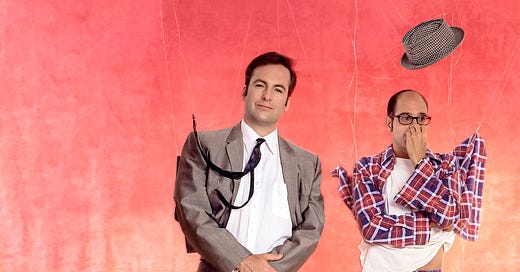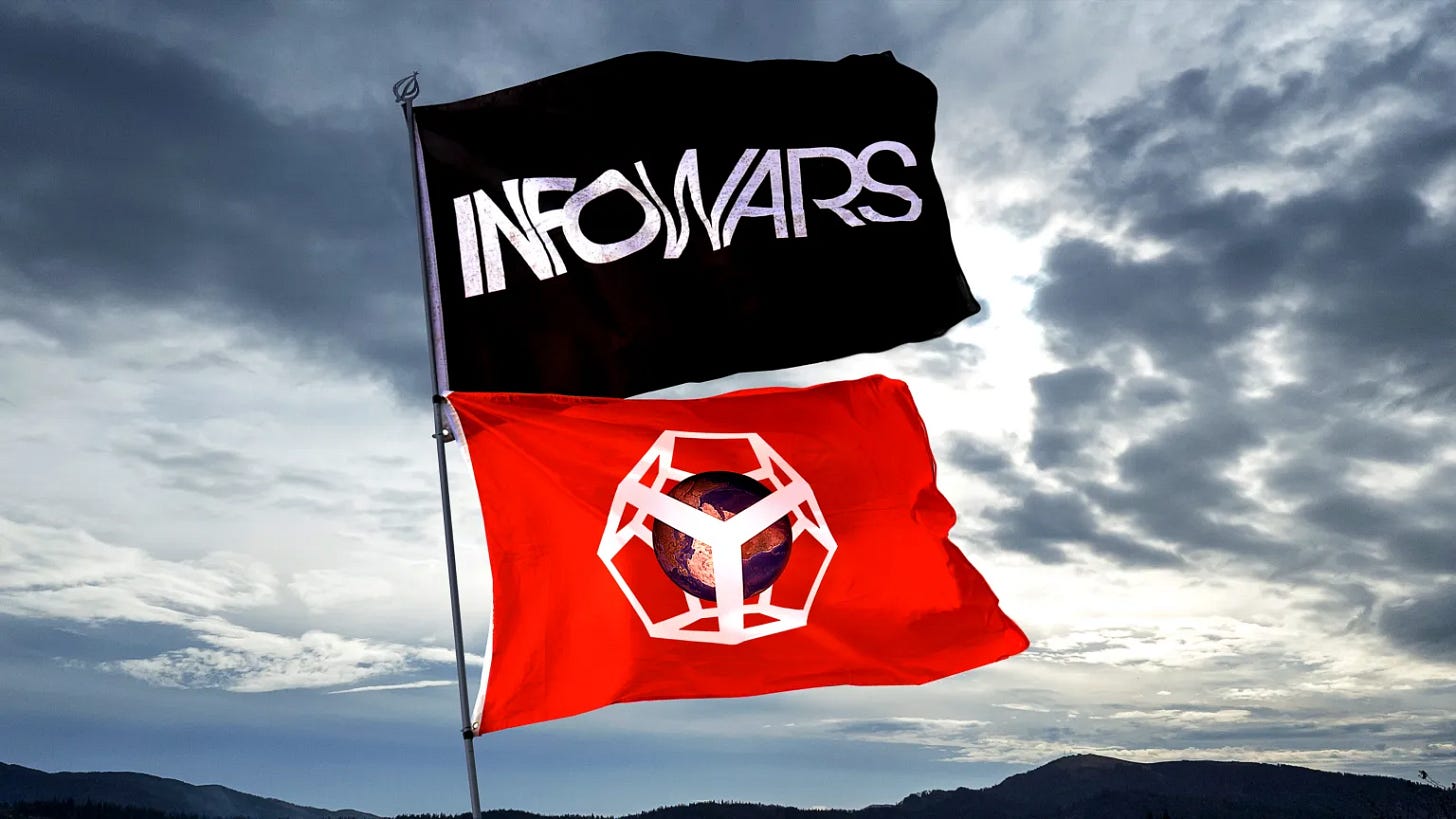Volume 5, Issue 46: Join the Club
"You never did tell us how you made the jump from selling patio furniture to precision optics."
Here is a button where you can subscribe to this newsletter now, if you have not previously done so. I do hope that you enjoy it.
One of the many dispiriting revelations of this past election was the discovery that the primary driver, statistically speaking, of Trump’s victory was not his voter turnout, or his increasing success with Latino and Asian voters, or some sort of suburban swing in his direction.
The reason Trump won this election was because Generation X, my generation, voted for him.
Generation X is generally thought of as the generation born between 1965 and 1980, so it’s not an exact match—the graphic above describes those between 1960 and 1979, and I have a difficult time seeing how someone who was well into their thirties when Nevermind and The Chronic came out can reasonably be considered “Gen-X”—but the basic gist of it holds: Gen-Xers, on the whole, voted for Trump. This flies in the face of what I have always thought about my generation, so I wonder if it’s worthwhile this morning to try to unpack exactly what this means.
First off, it’s obviously impossible to lock in a specific commonality among a group of people from widely different backgrounds across this vast country who just happened to be born in the same 15-year span. My experience growing up in rural Mattoon, Illinois is obviously different than someone raised in Boise, or Bensonhurst, or Buffalo, or Baton Rouge; expecting us to have the exact same views on anything just because we were all roughly the same age when Ronald Reagan was President is silly. My view of Generation X surely differs from yours, and everybody else’s. This gaping caveat should be noted right from the get-go.
But, obviously, Generation X has become shorthand for a wide swath of people for a reason. This is the neglected generation, the latchkey generation, the generation raised by parents who got divorced at the highest rate in American history, the slacker generation, the cynics, the ones, in the immortal words of Lloyd Dobler, “don't want to sell anything, buy anything, or process anything as a career. I don't want to sell anything bought or processed, or buy anything sold or processed, or process anything sold, bought, or processed, or repair anything sold, bought, or processed.” This is the first post-boomer generation, the one that had no wars to fight, the one that, in many ways, went inward—one that found extroversion, and the preening self-promotion of the generation both before and after its own, to be utter bullshit. I interviewed Chuck Klosterman a couple of years ago about his terrific book The Nineties, and I thought he summed up Gen-X pretty well, for better and for worse, when he discussed its sort of passive, privileged, but still kinda worthy, indulgence:
It was a time when you could kind of just kind of drop out, and be yourself, and work on your own life, or whatever. After the 1980s, where there was this idea that you deserve to be rewarded for really going for the jugular all the time, just getting what you can was seen as admirable. There was a sense in the ’90s that it was OK just to have your concern to be, “How is my life is in this apartment in which I rent?” Or maybe even smaller—what life is like inside of my mind as I sit in this chair in this apartment that I rent.
There is now a kind of pejorative belief that thinking about yourself, and the meaning of your own life is almost some sort of selfish act—that it’s maybe an extension of privilege, somehow. That the fact that you’re thinking about your own life proves that you’re not really concerned about people whose lives are worse. But not only do I not believe that, I don’t think it would necessarily be harmful even if it was partially true. This is our one chance to be alive. If you’re not somewhat interested in your own life, then what is important? If your life is meaningless, why would someone else’s matter, then?
So I guess you get the definition of Generation X that you prefer, depending on which of its traits you value as more important. Is it the self-indulgence that, combined with an inherent suspicion of institutions, led to the embrace of a nihilist narcissist who just wants to burn everything down (as happened constantly in Gen-X pop culture touchstones, from Fight Club to Reservoir Dogs to Heathers)? Or is it a pathological aversion to bullshit, to advertising, to the empty calories of mainstream popular culture and its consumerist packaging, one that should theoretically be precisely one to call out Trump’s con-man lowest-common-denominator hucksterism? I prefer the latter. But the voting patterns argue the former. As Matthew Yglesias put it, “I guess Donald Trump as the end point of Gen X nihilism makes sense.” Or maybe it’s even simpler than that. Conservative writer Timothy Carney argued that Gen Xers simply became middle-aged, and middle-aged people, because they have children and worry about money more than generations before and after them, tend to vote Republican. (Even if being worried about inflation and household finances should have, alas, been a reason to vote Harris, not Trump.) “Gen Xers got jobs, paid off student loans, got married in their 20s, and had children,” Carney writes. “The average age at first marriage in the early 2000s was about 25 for women and a bit higher for men — meaning the average Gen-Xer was married with a job within a decade of leaving school. The birth rate was higher in the late 1990s and the early 2000s, when Gen X was the bulk of the baby-makers. Once the millennials entered their mid- to late 20s, the birthrate fell and kept plummeting. Births have fallen almost every year since 2007 and are now down more than 16 percent. So the people who became grown-ups in a normal way are Republicans now.”
I don’t agree with a lot of that, but it’s also worth noting that I also don’t want to agree with a lot of that. Every generation thinks it is uniquely special, that it’s part of the next vanguard, the one that’s going to fix all the mistakes of all the generations that came before it—Lord knows, no one made a bigger deal of claiming that than the boomers did—and then, when push comes to shove, they all turned into their parents just like their parents did when they hit middle-age. For all the talk of Trump’s terrifying Cabinet picks this past week, one thing they definitely are? They’re definitely made of of Generation Xers.
That chart definitely cheats a little—it includes Kamala Harris twice, including as “border czar,” which is not an actual title she, or anybody else, ever held—but its overarching truth is undeniable. In my mind, Generation X is Richard Linklater, and Liz Phair, and Winona Ryder, and John Cusack. But in the real world, Generation X is just a bunch of middle-age mediocrities and craven climbers like every generation is: Generation X is Kristi Noem and Ted Cruz far more than it is Paul Thomas Anderson or Tupac Shakur. I am attaching universality where universality is not there. That’s another thing Gen-X people tend to do.
Ultimately, it seems increasingly clear that I am guilty of doing something that every generation does: Thinking we were different. I remember being in college and finding most of the things my parents’ generation thought and did absolutely ridiculous, and I couldn’t wait until the good souls that were us young people, Power to The Young People, took control and fixed all that they had broken. It turns out there was nothing uniquely interesting about us at all. We were just young people who hadn’t gotten middle-aged yet. We thought there was something different about us. But there wasn’t. In the end, when it really mattered, we may have ended up just like our parents. Maybe worse.
Does this all track, when I look back at the Gen-X icons of my youth? How about a quick Gen-X icon scan? Where would they have voted? Some are easy to figure out, being still alive and all. Eddie Vedder, unsurprisingly, was a big Harris supporter; he even had Doug Emhoff on his radio show/podcast. (Who didn’t?) Winona Ryder hates Trump too. So I guess that’s a relief. I’m sure Cobain and Tupac would have spoken out against him too, were they still alive. But I’m more curious about our fictional icons.
Lloyd Dobler? All that talk about individuality and anti-capitalism sounds great, but you can totally see Lloyd getting a little edgelord-y, a little bit of do-your-own-research guy when he gets older, right? (He would also never stop patting himself on the back for seeing kickboxing as the sport of the future.) I’m not sure there’s a single character in a Quentin Tarantino movie, save for maybe Jackie Brown herself, who would have voted for Harris. My personal favorite Generation X movie series is the Before Sunrise series, but while I have zero doubt that Céline would be repulsed by Trump and all the ugly Americanism he represents, are we sure Jesse doesn’t end up embroiled in some sort of campus MeToo scandal and turning all cancel-culture woke-mob! on us? It certainly seems on the table. Also, what percentage of the Friends voted Harris when they got older? Are we sure it’s more than half? (My guess on Trump voters: Chandler, maybe Monica, maybe Ross, and you can totally see Joey becoming a cast member on, like, the fourth season of The Celebrity Apprentice and ended up, like, the ambassador to San Marino or something.)
And jeez, as a “Mr. Show” obsessive, I can’t say I’m delighted that live in a world where “Choo-Choo,” the Hurkey Jerky Dancer …
…. ended up going to prison for storming the Capitol.
We all believed ourselves so capable of changing the world when we were young, as if we were uniquely designed to lay waste to all that came before us and build a better planet, with better people, in its place. And now we stand here, the generation that put Trump back in office and all the wreckage that will result. We can only hope that our kids will look at us, the way we looked at our parents, and dedicate themselves to undoing our mistakes. I’m sure they are telling themselves that. Just like we did. And here we all are.
Here is a numerical breakdown of all the things I wrote this week, in order of what I believe to be their quality.
We Didn’t Get Our Trump Retribution, But Perhaps Aaron Rodgers Will Suffice? New York. Man, Aaron Rodgers sucks, and what is happening to him could not happen to a better guy.
The Commanders Are Further Proof That Megalomaniacal Billionaires Are Bad and We Should Get Rid of Them, The Washington Post. Fun with Daniel Snyder.
Could the Cardinals Shake Up This Whole Offseason? MLB.com. Always happy to get to dig deep on the Cardinals with words rather than screams.
The First Power Rankings of the Offseason, MLB.com. At least fewer games means I get slightly more sleep.
PODCASTS
Grierson & Leitch, we discussed “Anora,” “Blitz” and “Heretic.”
Waitin’ Since Last Saturday, we reviewed the Ole Miss game and previewed the Tennessee game.
Morning Lineup, I did Friday morning’s show.
LONG STORY YOU SHOULD READ THIS MORNING … OF THE WEEK
“Here’s Why I Decided To Buy ‘InfoWars’” Bryce P. Tetraeder, The Onion. Man, I needed this this week, didn’t you?
Founded in 1999 on the heels of the Satanic “panic” and growing steadily ever since, InfoWars has distinguished itself as an invaluable tool for brainwashing and controlling the masses. With a shrewd mix of delusional paranoia and dubious anti-aging nutrition hacks, they strive to make life both scarier and longer for everyone, a commendable goal. They are a true unicorn, capable of simultaneously inspiring public support for billionaires and stoking outrage at an inept federal state that can assassinate JFK but can’t even put a man on the Moon.
ONGOING LETTER-WRITING PROJECT!
This is your reminder that if you write me a letter and put it in the mail, I will respond to it with a letter of my own, and send that letter right to you! It really happens! Hundreds of satisfied customers! (Got some more of these out this week, stand by.)
Write me at:
Will Leitch
P.O. Box 48
Athens GA 30603
CURRENTLY LISTENING TO
“Archbishop Harold Holmes,” Jack White. A very, very fun rocker from White’s new album, a song that is all about snake oil salesmen in a way I find very satisfying right now.
Remember to listen to The Official Will Leitch Newsletter Spotify Playlist, featuring every song ever mentioned in this section.
Also, there is an Official The Time Has Come Spotify Playlist.
I’m heading to Birmingham, Alabama, this week to watch some Illini basketball with Bryan Leitch. Keep an eye out for the similar-looking blobs of orange in the crowd.
Have a great weekend, all.
Best,
Will









Monica and Ross are Jewish and Harris received 70% to 80% of the Jewish vote. Plus they live in New York and Ross is a Man of Science so I am confident they would have voted for Harris. (I can't believe I wrote this comment.)
A high percentage of people threatening school board members seem to be Gen Xers. This tracks.